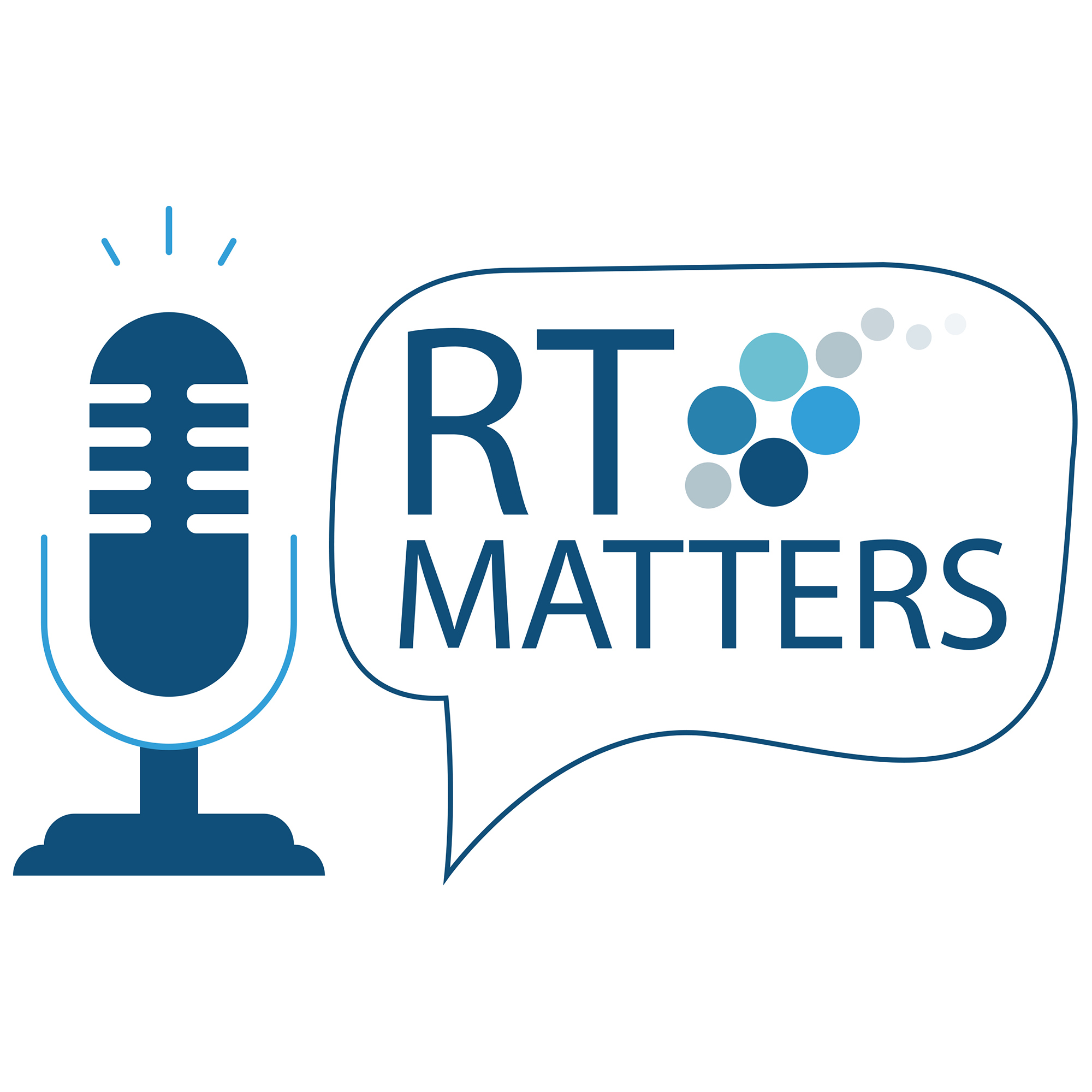RTMatters
Podcast Description
RTMatters is the go-to podcast for respiratory therapists who want to engage in candid, thought-provoking conversations about the profession. Hosted by Patrick Dunne, each episode features in-depth interviews with industry experts, experienced RTs, and other healthcare professionals.
Whether you’re navigating career challenges, seeking work-life balance, or simply looking to connect with others in the RT community, RTMatters offers valuable insights, personal stories, and practical advice. From the impact of staffing shortages to exploring new career paths in respiratory therapy, we tackle the topics that truly matter.
Join us for conversations that will inspire, inform, and empower you to take control of your professional journey. Every episode is designed to help you stay engaged, motivated, and connected to a community of like-minded RTs.
Tune in, get inspired, and make your voice heard by sending your questions and feedback to [email protected].
Podcast Insights
Content Themes
The podcast covers essential themes related to respiratory therapy, including career development, work-life balance, and recognition of the profession's value within healthcare. Example episodes include discussions on combating under-appreciation in the field and exploring various career paths for RTs, emphasizing mentorship and ongoing education as critical components for growth.

RTMatters is the go-to podcast for respiratory therapists who want to engage in candid, thought-provoking conversations about the profession. Hosted by Patrick Dunne, each episode features in-depth interviews with industry experts, experienced RTs, and other healthcare professionals.
Whether you’re navigating career challenges, seeking work-life balance, or simply looking to connect with others in the RT community, RTMatters offers valuable insights, personal stories, and practical advice. From the impact of staffing shortages to exploring new career paths in respiratory therapy, we tackle the topics that truly matter.
Join us for conversations that will inspire, inform, and empower you to take control of your professional journey. Every episode is designed to help you stay engaged, motivated, and connected to a community of like-minded RTs.
Tune in, get inspired, and make your voice heard by sending your questions and feedback to [email protected].
In this episode of RTMatters, Patrick sits down with Carri McClure, MBA, RRT, Clinical Supervisor of Respiratory Care at WellStar North Fulton Hospital in Roswell, GA. Carri shares her professional journey in respiratory therapy and discusses how advancing her education helped shape her current leadership role.
The conversation takes a candid look at the growing trend of delegating so-called “routine basic inpatient tasks”—including MDI and nebulizer treatments—to non-RT personnel. Carri highlights why these activities are far more than simple tasks and explains the critical role RTs play in monitoring, teaching, coaching, and assessing patients, especially outside of the critical care environment.
Carri also raises important patient safety concerns regarding a recent proposal, shared on AARConnect, suggesting that PACU nurses perform mechanical ventilation liberation and extubation—procedures traditionally and appropriately managed by respiratory therapists.
This episode underscores the need for RTs to stay actively engaged as the healthcare landscape continues to shift post-pandemic. Carri and Patrick explore how RTs can help shape these changes to protect patient safety and ensure the continued delivery of high-quality, effective respiratory care.
Have any questions or suggestions? Please email us at [email protected]
#RTMatters #RespiratoryTherapists #PatientSafety #ScopeOfPractice #RespiratoryCare #HealthcareChanges #RTLeadership #ProfessionalAdvocacy

Disclaimer
This podcast’s information is provided for general reference and was obtained from publicly accessible sources. The Podcast Collaborative neither produces nor verifies the content, accuracy, or suitability of this podcast. Views and opinions belong solely to the podcast creators and guests.
For a complete disclaimer, please see our Full Disclaimer on the archive page. The Podcast Collaborative bears no responsibility for the podcast’s themes, language, or overall content. Listener discretion is advised. Read our Terms of Use and Privacy Policy for more details.